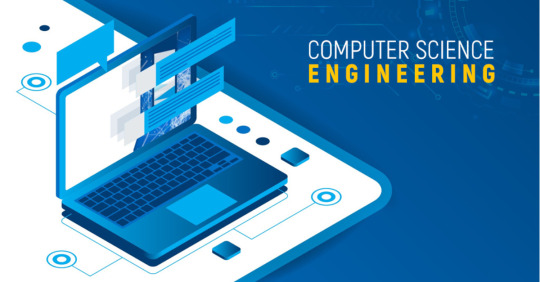Text
IoT Development and Sustainability: Bridging the Gap for a Greener Tomorrow
Introduction
The Internet of Things (IoT) is revolutionizing the way we interact with technology and the world around us. It has rapidly transformed our homes, businesses, and cities, making them smarter and more efficient. However, as IoT development continues to grow, it's crucial to address its impact on sustainability. In this article, we'll explore the intersection of IoT development and sustainability, highlighting how IoT can be harnessed to create a more environmentally friendly and sustainable future.
Understanding IoT Development
IoT development involves connecting everyday objects and devices to the internet, enabling them to collect and share data, communicate with each other, and perform various tasks autonomously. These devices, often equipped with sensors and actuators, can range from smart thermostats and wearable fitness trackers to industrial machines and autonomous vehicles.
IoT and Sustainability

1. Energy Efficiency: One of the key contributions of IoT to sustainability is its ability to optimize energy consumption. Smart homes and buildings equipped with IoT devices can monitor energy usage in real time, adjust lighting and heating systems based on occupancy, and even integrate renewable energy sources more effectively. This leads to significant reductions in energy waste and lowers carbon emissions.
2. Waste Reduction: IoT devices also play a critical role in waste management. Smart trash cans equipped with sensors can signal when they need emptying, reducing unnecessary trips by garbage trucks. In agriculture, IoT sensors can help optimize irrigation and reduce water wastage, contributing to sustainable farming practices.
3. Transportation and Logistics: IoT-driven advancements in transportation and logistics have the potential to reduce emissions and improve efficiency. Smart traffic management systems can optimize traffic flow, reducing congestion and emissions. Additionally, logistics companies can utilize IoT to track and optimize the routes of their delivery vehicles, minimizing fuel consumption.
4. Environmental Monitoring: IoT devices are instrumental in monitoring and protecting the environment. For instance, sensors placed in bodies of water can measure water quality, detect pollution, and help preserve aquatic ecosystems. Similarly, IoT-based weather and air quality monitoring systems aid in early warning of natural disasters and air pollution episodes.
Challenges and Considerations
While IoT development offers significant potential for sustainability, several challenges and considerations must be addressed:
1. Security and Privacy: As more devices become interconnected, the risk of cybersecurity threats and privacy breaches increases. Ensuring robust security measures is essential to protect both data and the physical infrastructure.
2. Resource Consumption: The production and disposal of IoT devices can contribute to electronic waste. Manufacturers must prioritize sustainable materials and design for longevity and recyclability.
3. Energy Consumption: IoT devices themselves must be energy-efficient. Frequent battery replacements or power-hungry devices can undermine the sustainability goals of IoT.
4. Interoperability: Ensuring that different IoT devices and platforms can communicate and work together seamlessly is crucial for maximizing their sustainability benefits.
The Role of IoT in Sustainable Cities
Sustainability is especially relevant in the context of urban development. With the global trend toward urbanization, IoT can help create sustainable smart cities. Here are some ways IoT contributes to sustainable urban development:
1. Smart Transportation: IoT-driven smart transportation systems can reduce traffic congestion, improve public transit, and promote the use of electric and autonomous vehicles, ultimately reducing greenhouse gas emissions.
2. Energy-efficient Buildings: Smart building solutions powered by IoT can optimize energy usage in commercial and residential structures, reducing energy bills and carbon footprints.
3. Waste Management: IoT-enabled waste management systems can streamline garbage collection routes, reduce litter, and promote recycling and composting.
4. Public Services: Smart city initiatives can improve public services like healthcare, education, and safety through IoT applications, enhancing the overall quality of life while minimizing resource consumption.
Conclusion
IoT development and sustainability are two forces that, when harnessed together, have the potential to shape a more environmentally conscious and efficient future. By addressing challenges such as security, resource consumption, and interoperability, we can ensure that IoT technologies continue to drive positive change while minimizing their environmental impact. Sustainable IoT solutions not only benefit individual consumers and businesses but also contribute to the broader goal of mitigating climate change and creating a greener, more sustainable planet. As we continue to innovate in the realm of IoT, let's prioritize sustainability to pave the way for a brighter and more eco-friendly tomorrow.
0 notes
Text
BTech (Bachelor of Technology) courses are undergraduate programs that focus on engineering and technology disciplines. These courses provide students with a strong foundation in scientific principles, problem-solving skills, and technical expertise. To know more please visit https://www.itm.ac.in/undergraduate-btech.html
0 notes
Text
Welcome to the world of Fashion Designing Courses! Fashion Designing Courses offer the best exposure to the realm of fashion and offer students a chance to showcase their creativity. Let us take you through what this course is and how it benefits the students. To know more please visit https://www.itm.edu/idm-bachelor-of-design-in-fashion-design
0 notes
Text
Career Options for MBA Finance Graduates
MBA stands for Master of Business Administration. It is a graduate-level degree program that focuses on developing knowledge and skills in various aspects of business and management. MBA programs typically cover a wide range of subjects such as finance, marketing, human resources, operations management, strategy, and entrepreneurship.
The goal of an MBA course is to equip students with a comprehensive understanding of business principles and practices, and to develop their leadership, critical thinking, problem-solving, and decision-making abilities. It is designed to prepare individuals for managerial and leadership positions in organizations across various industries. MBA courses often emphasize practical application of business concepts through case studies, group projects, internships, and networking opportunities.
MBA in Finance
MBA in Finance is a specialized program within the broader field of Master of Business Administration (MBA) that focuses on developing expertise in finance and related areas. It is designed for individuals who have a keen interest in financial management, investment analysis, corporate finance, and other aspects of the financial industry.
An MBA in Finance curriculum typically covers a range of core business subjects such as accounting, economics, marketing, operations management, and strategic management. Graduates of an MBA in Finance program are prepared for a wide range of career paths in finance, including roles in investment banking, corporate finance, financial consulting, asset management, risk management, and financial analysis. They possess the skills and knowledge needed to make strategic financial decisions, manage portfolios, analyze investments, assess financial risks, and contribute to the financial success of organizations.

Skills gained in MBA in Finance
MBA graduates gain expertise in analyzing financial statements, assessing the financial health of organizations, and conducting financial modeling to evaluate investment opportunities.
MBA students learn how to create and analyze financial plans, develop budgets, and forecast financial performance. They gain skills in financial reporting, variance analysis, and using financial data to guide strategic decision-making.
Students also develop an understanding of various types of financial risks, such as market risk, credit risk, and operational risk.
MBA programs emphasize strategic financial management, including capital allocation, mergers and acquisitions, and financial restructuring.
With the growing importance of data analytics and financial technology (fintech), MBA in Finance students acquire skills in using data analysis tools and software.
MBA programs emphasize leadership development and effective communication skills. Students learn how to lead teams, manage projects, and collaborate with diverse stakeholders. They also enhance their presentation and negotiation skills, essential for success in the finance industry.
Career Options for MBA Finance Graduates
Financial Analyst: Financial analysts assess investment opportunities, analyze financial data, and provide recommendations to individuals and organizations regarding investment decisions.
Investment Banker: Investment bankers assist companies and governments in raising capital, conducting mergers and acquisitions, and providing financial advisory services. They work closely with clients to execute complex financial transactions.
Financial Manager: Financial managers oversee the financial operations of an organization, including financial planning, budgeting, and risk management. They ensure that the organization's financial goals are met and make strategic financial decisions.
Risk Manager: Risk managers identify and assess potential risks that may impact an organization's financial stability. They develop strategies to mitigate these risks and ensure compliance with regulations.
Financial Consultant: Financial consultants provide expert advice to individuals and organizations on financial planning, investment management, and wealth preservation. They assist clients in achieving their financial goals and provide guidance on tax planning, retirement planning, and estate planning.
0 notes
Text
Exploring Career Opportunities with a Bachelor in Business Administration (BBA) Degree
Bachelor in Business Administration, commonly known as BBA, is a highly sought-after course for individuals interested in the field of business management. It provides students with a comprehensive understanding of various business concepts and prepares them for a wide range of career opportunities in the corporate world. This blog aims to highlight the benefits and professional opportunities that come with a Bachelor in Business Administration degree.
Insights into Business Concepts
A BBA degree equips students with insights into essential business concepts such as economic management, marketing, accounting principles, and organizational management. This comprehensive knowledge base enables graduates to have a holistic understanding of how businesses operate, giving them a competitive edge in the job market.
Skill Development and Experience
One of the significant benefits of pursuing a BBA degree from BBA colleges is the opportunity to develop a range of skills. Students engage in practical projects, group discussions, and case studies that enhance their problem-solving, analytical thinking, and decision-making abilities. Additionally, working in strategy-building teams and analyzing a company's success rate provides valuable hands-on experience that can be applied in real-world business scenarios.

Promising Career Opportunities
A BBA degree opens up a wide range of career opportunities across industries. Some of the popular career paths for BBA graduates from BBA colleges include:
Business Analyst: Analyzing market trends, conducting research, and providing strategic recommendations to enhance business performance.
Marketing Manager: Developing marketing strategies, conducting market research, managing advertising campaigns, and driving brand awareness.
Financial Analyst: Analyzing financial data, preparing reports, and providing insights for investment decisions and financial planning.
Human Resources Manager: Overseeing employee recruitment, training and development, performance management, and ensuring compliance with labor laws.
Operations Manager: Managing and optimizing business operations, improving efficiency, and implementing effective processes and systems.
Higher Pay Scale
Completing a BBA colleges degree from a reputable institution increases the chances of securing a well-paid job. Employers value the comprehensive business knowledge and skills acquired through a bachelor of business administration program, leading to higher salary prospects for graduates. It is essential to choose a college with a good track record of placements and a strong network of recruiters to maximize job opportunities and salary potential.
Entrepreneurship Opportunities
A BBA colleges degree also prepares individuals for entrepreneurial endeavors. With a strong foundation in business management, graduates can start their own ventures and apply their knowledge to establish and grow successful businesses. The acquired business acumen and critical thinking skills provide a solid foundation for entrepreneurial success.
0 notes
Text
A hotel management course offers a platform for individuals to develop a wide range of skills necessary for a successful career in the hospitality industry. These courses focus on building a strong foundation in areas such as hotel operations, guest services, food and beverage management, event planning, and marketing. Students gain practical experience through internships and hands-on training, honing their communication, leadership, problem-solving, and customer service skills. Additionally, they develop a strong business acumen, learning about financial management, revenue generation, and strategic planning. A hotel management course equips individuals with the necessary skills and knowledge to excel in various roles within the dynamic and ever-growing hospitality sector. To know more please visit https://www.itm.edu/institute-of-hotel-management
Developing Skills Through a Hotel Management Course
Hotel management course
A hotel management course is a program of study that provides students with the knowledge and skills required to work in the hospitality industry.
It is designed to train students in hotel operations, leadership, and management, as well as the practical skills necessary to succeed in the industry.
Students in a hotel management institute learn about the different aspects of hotel operations, such as accommodation, food and beverage, events management, and customer service.
The course equips students with the necessary skills to oversee hotel operations, manage staff, and provide exceptional customer service.
Benefits of pursuing a hotel management course
There are numerous benefits to pursuing this course. Here are some of them:
It provides students with industry-specific skills, such as communication, problem-solving, decision-making, and customer service skills, which are essential for success in the hospitality industry.
Individuals who pursue the hotel management course are more employable in the hospitality industry than those without formal education in the field.
The hospitality industry is a global industry, and individuals who pursue this course have access to global career opportunities.
Many courses offer international study opportunities, which can provide students with exposure to different cultures, languages, and hospitality practices.

Skills developed in Hotel Management degree
The hospitality industry is all about serving customers, and Hotel Management programs help students develop customer service skills that meet or exceed customer expectations.
Students in Hotel Management programs learn financial management skills such as budgeting, forecasting, and cost control.
Hotel Management programs teach students marketing and sales skills that help them promote their business, increase revenue, and create a positive brand image.
The hospitality industry can be fast-paced and hectic, so students in Hotel Management programs learn time management skills such as prioritization, scheduling, and multitasking.
How to develop skills through the course
Developing skills through this course involves actively engaging in the coursework and taking advantage of the various opportunities provided by the program. Here are some tips on how to develop skills through this course:
Group activities such as group projects, team assignments, and class presentations are excellent opportunities to develop teamwork, communication, and leadership skills.
Seek feedback from your instructors and peers on your assignments and presentations. Constructive feedback will help you identify areas for improvement and develop your skills further.
Practical experiences such as internships, work placements, and hands-on training sessions are valuable opportunities to develop skills such as customer service, event planning, and financial management.
Networking is an essential skill in the hospitality industry, and this course provides numerous opportunities to network with industry professionals, guest speakers, and other students.
The hospitality industry is constantly evolving, and it’s essential to keep learning and developing your skills to stay competitive.
1 note
·
View note
Text
The Advantages of Pursuing a BSc Optometry Degree
Optometry is a specialized healthcare profession that deals with the diagnosis, treatment, and management of vision and eye-related health problems. Optometrists are trained healthcare professionals who specialize in providing eye care services, including eye examinations, visual acuity testing, prescribing corrective lenses, and managing various eye diseases and disorders.
Types of Optometry courses
Bachelor of Optometry (BOptom): This is an undergraduate course in optometry that provides students with a comprehensive understanding of the eye and visual system. Four years is the usual duration of the programme.
Diploma in Optometry: This is a diploma-level course in optometry that provides students with a basic understanding of eye care services. Four years is the usual duration of the programme.
Master of Optometry: This is a postgraduate degree program in optometry that provides students with advanced knowledge and skills in various areas of optometry. The optometry course duration is two years.
Doctor of Optometry (OD): This is a postgraduate degree program that provides students with advanced clinical training and specialization in optometry. The doctor of optometry course duration is typically four years.
Bachelor of Optometry
Bachelor of Optometry (BOptom) is an undergraduate programme in optometry that offers students a thorough grasp of the eye and visual system. This course is typically four years long and covers a range of topics related to eye care, including ocular anatomy, physiology, optics, and visual perception.
After completing the BOptom course, graduates can pursue a career as a licensed optometrist, working in private practices, hospitals, clinics, and optical shops. They can also pursue higher education in optometry by enrolling in a postgraduate degree program, such as a Master of Optometry or Doctor of Optometry (OD) program.

The Benefits of Pursuing a BSc Optometry Degree
Career Opportunities: Pursuing a BSc Optometry degree opens up a range of career opportunities for graduates, including working as an optometrist, vision therapist, or as a consultant in eye care clinics or hospitals.
Comprehensive Learning: BSc Optometry courses offer a comprehensive understanding of the anatomy, physiology, and pathophysiology of the eye, as well as knowledge about the optical and refractive properties of the eye. This provides a thorough understanding of the field and helps graduates in their practice.
Specializations: BSc Optometry courses offer specializations in various areas such as contact lenses, binocular vision, low vision, pediatric optometry, geriatric optometry, and more, allowing students to choose the specialization that interests them and pursue their career accordingly.
Hands-on Experience: BSc Optometry courses provide students with hands-on experience in clinical settings, which prepares them for real-world practice. This helps them to develop clinical skills, ethical considerations, and inter-personal skills.
Growing Demand: With the growing awareness of eye care and the increase in the aging population, there is an increasing demand for optometrists, making BSc Optometry a promising career choice.
Research Opportunities: Pursuing a BSc Optometry degree also provides opportunities for research and developing innovative techniques and technologies for eye care.
0 notes
Video
BBA stands for Bachelor of Business Administration, which is a four-year undergraduate program that provides students with a comprehensive understanding of business management and administration. The course curriculum includes courses in accounting, finance, marketing, human resources, and entrepreneurship. To learn more please visit https://www.itmuniversity.org/undergraduate-bba.html
0 notes
Text
Business administration has been a popular area of study for many students in today's quick-paced and dynamic environment. You can use a wide range of skills and knowledge from a business administration degree to a number of different businesses and professional options. We'll talk about the benefits of getting a business administration degree for your job and personal life. The variety of employment opportunities provided by a business administration degree from a BBA university is one of the main advantages of doing so. Graduates can find employment in a variety of fields, including, but not limited to, finance, marketing, operations, and human resources. To learn more please visit https://www.itmuniversity.org/undergraduate-bba.html
Why Pursuing a Business Administration Degree is Beneficial For Your Career and Life
In today’s fast-paced and ever-changing world, business administration has become a popular field of study for many students. A degree in business administration can provide you with a wide range of skills and knowledge that can be applied to various industries and career paths. In this blog, we will discuss the reasons why pursuing a business administration degree can be beneficial for your career and personal life.
Versatile Career Options
One of the primary benefits of pursuing a business administration degree from a BBA university is the versatility it offers in terms of career options. Graduates can work in various industries such as finance, marketing, operations, and human resources, to name a few.
Additionally, business administration graduates from a BBA university can work in different positions such as management, analyst, consultant, and entrepreneur, among others. The knowledge and skills learned in this degree program can be applied to any business or organization, regardless of its size or location.
Practical Skills for Business Success
A business administration degree from a BBA university equips students with the practical skills needed to succeed in business. These skills include financial management, marketing strategies, leadership, critical thinking, and problem-solving.
Graduates with these skills are equipped to make informed and effective business decisions. They can analyze financial statements, design effective solutions to organizational problems, and develop strategic business plans.

High Demand and Competitive Salaries
The job market for Bachelor of business administration graduates is robust, and many employers seek candidates with a business administration degree. According to the Bureau of Labor Statistics, employment in business and financial operations occupations is projected to grow 5 percent from 2019 to 2029, adding about 476,200 new jobs.
Additionally, many positions in the business industry offer competitive salaries, with a median annual wage of $69,820 for business and financial occupations in May 2020.
Personal Benefits and Growth
A degree in business administration not only benefits your career but can also benefit your personal life. The skills learned in this degree program can be applied to managing personal finances, investments, and decision-making. Additionally, pursuing a degree can boost confidence and self-esteem and open doors to personal growth opportunities.
Conclusion
A degree in BBA course provides a foundation for success in various industries and career paths. The practical skills learned in this degree program can help you make informed decisions and solve complex problems in any organization. Pursuing a degree in business administration can also lead to high demand and competitive salaries.
Lastly, the benefits of a BBA colleges degree extend beyond the workplace and can positively impact your personal life. Overall, a business administration degree is a wise investment in your future.
1 note
·
View note
Text
The Future of Computer Science Engineering
Computers have revolutionized the way we live and work, and Computer Science Engineering (CSE) is a field that is rapidly gaining popularity among engineering students. With its potential for creativity and technology, CSE offers a range of exciting career opportunities in various industries. In this blog, we will discuss why CSE is in demand and the top benefits of pursuing a B.Tech in Computer Science Engineering.
Why is Computer Science in Demand?
With nearly every business using digital technology, computer science has become a crucial field in the current scenario. Computer science and engineering offer numerous opportunities in various industries, and graduates are equipped with technical skills such as programming, operating systems, and creative problem-solving. As technology advances, so do the opportunities in CSE, with graduates becoming Game Developers, Software Engineers, Web Developers, System Analysts, Product Managers, and much more. With nearly 72% employment rates, CSE offers a high placement record and a stable career path.

Top Benefits of Pursuing B.Tech Computer Science Engineering:
Apart from the exciting career opportunities, pursuing a B.Tech in Computer science and engineering offers many benefits.
Outstanding Job Prospects:
CSE is a rapidly growing field, and graduates have a higher chance of landing rewarding jobs. With the right skills, CSE graduates can have gratifying roles in leading industries, and colleges like CMRU Bangalore prepare students for this with excellent campus placement opportunities.
Innovative Learning Experience:
CSE offers an innovative learning experience with a range of subjects like Data Structures, Algorithms, Computer Networks, Operating Systems, and much more. The course provides hands-on experience with various tools and programming languages, enabling students to develop practical skills.
Wide Range of Specializations:
Computer science and engineering offer a wide range of specializations, enabling students to pursue their interests and strengths. Specializations such as Artificial Intelligence, Data Science, Cyber Security, and much more are in high demand and offer numerous opportunities.
High Salaries:
CSE graduates earn some of the highest salaries compared to other fields. With the right skills and knowledge, CSE graduates can earn substantial salaries and have a stable career path.
Conclusion
Computer science engineering is a field that offers a range of exciting career opportunities and benefits. With its potential for creativity and technology, CSE is rapidly growing in demand, and graduates have a higher chance of landing rewarding jobs. Pursuing a B tech CSE offers an innovative learning experience, a wide range of specializations, and the potential for high salaries. With the industry set to grow in the decades to come, CSE is an excellent career path for aspiring students.
1 note
·
View note
Text
Benefits of Pursuing Health Science courses in Mumbai
Health science courses are educational programs that cover a broad range of topics related to health and healthcare. These courses are designed to provide students with knowledge and skills in various aspects of health and healthcare, including anatomy and physiology, medical terminology, public health, nutrition, healthcare management, disease prevention, and control, healthcare ethics, research methods, and more. It can be offered at different educational levels, including undergraduate, graduate, and professional levels.

Benefits of Pursuing Health Science Courses in Mumbai
Mumbai is home to several renowned institutes of health sciences that are known for their academic excellence, experienced faculty, and state-of-the-art facilities. This institute of health sciences Mumbai often has collaborations with top hospitals, research centers, and healthcare organizations, providing students with exposure to cutting-edge technologies, research opportunities, and practical training. The reputation of these institutions can add value to a student's qualification and increase their chances of securing better career opportunities.
Institute of health sciences Mumbai offer a wide range of specializations, such as nursing, pharmacy, physiotherapy, radiology, nutrition, and more. Students can opt for a specialization that matches their passion and aptitude, enabling them to gain in-depth knowledge and expertise in their chosen field.
Mumbai being a metropolitan city with a robust healthcare ecosystem, offers ample opportunities for students to gain practical exposure. Many health science courses in Mumbai include internships, clinical rotations, and hands-on training in top hospitals, clinics, and healthcare organizations. This practical exposure allows students to apply their theoretical knowledge in real-world scenarios, develop clinical skills, and understand the challenges and complexities of the healthcare industry.
Mumbai offers a plethora of career opportunities for health science graduates. The city is home to numerous hospitals, research institutes, pharmaceutical companies, healthcare startups, and other healthcare organizations, creating a wide range of job prospects.
Pursuing a course at the institute of health sciences Mumbai provides opportunities for students to network with industry professionals, experts, and alumni. Many institutions organize guest lectures, workshops, seminars, and other networking events that allow students to interact with professionals.
Exposure to Diverse Patient Populations: Mumbai is known for its diverse population, with people from various cultures, backgrounds, and demographics residing in the city. This diversity provides health science students with exposure to a wide range of patients with different health conditions, cultural beliefs, and social determinants of health.
Mumbai has a vibrant research and innovation ecosystem, with several research institutes, healthcare startups, and innovation hubs. Health science students in Mumbai have the opportunity to engage in cutting-edge research, innovations, and advancements in healthcare.
Pursuing a course at the institute of health sciences Mumbai can lead to personal and professional growth. The exposure to diverse healthcare settings, patient interactions, and challenging scenarios helps students develop resilience, empathy, communication
0 notes
Video
To begin our journey into hotel management, we need to understand the key concepts that underpin the industry. Customer service, revenue management, operations, marketing, and human resources are all critical areas that we will cover in this course. These concepts are the foundation for effective hotel management. To learn more please visit https://www.itm.edu/institute-of-hotel-management
0 notes
Text
What is the Scope of Fashion Designing Course?
A fashion designing course from the fashion designing colleges in Mumbai is a type of educational program that provides training and education in fashion design. It typically covers various aspects of fashion design, including fashion illustration, pattern making, garment construction, fabric selection, textile science, fashion history, fashion business, and fashion marketing.
Fashion designing courses are offered by fashion schools, fashion designing colleges in Mumbai, and universities, as well as specialised fashion designing institute in Navi Mumbai and academies. These courses can be pursued at different levels, including diploma, undergraduate, and postgraduate degrees, depending on the institution and the duration of the course.
The curriculum of fashion designing courses after 12th may vary depending on the program and the institution. Still, it generally focuses on developing the skills and knowledge required to create innovative and stylish clothing and accessories. Students learn about different design techniques, fashion trends, color theory, fabric manipulation, garment fitting, and fashion illustration. They may also gain hands-on experience through practical assignments, workshops, internships, and fashion shows.
Fashion designing courses are ideal for those who have a keen interest in fashion, creativity, and design, and aspire to pursue a career in the fashion industry. Upon completing a fashion designing course, graduates can work as fashion designers, fashion illustrators, pattern makers, garment technologists, fashion stylists, fashion merchandisers, fashion entrepreneurs, or other roles in the fashion and apparel industry. They can also start their own fashion label or work as freelance fashion designers with a minimal fashion designing courses fees

Scope of Fashion Designing course?
The scope of a fashion designing course from fashion designing colleges in Mumbai can be quite diverse, offering a range of opportunities for graduates in the fashion and apparel industry. Some of the potential career paths and opportunities that may be available to fashion designing course graduates include:
Fashion Designer: Graduates can work as fashion designers, creating their own fashion collections or designing for established fashion brands. They can specialize in various areas, such as women's wear, men's wear, children's wear, bridal wear, sportswear, or accessories.
Fashion Illustrator: Fashion illustrators create visual representations of fashion designs, using various mediums such as hand-drawing, digital illustration, or fashion sketching. They may work as freelance illustrators or be employed by fashion brands, advertising agencies, fashion publications, or fashion design studios.
Pattern Maker: Pattern makers create patterns based on fashion design sketches or specifications, which are used as templates for cutting and sewing garments. They may work in the apparel manufacturing industry, fashion studios, or as freelancers.
Garment Technologist: Garment technologists are responsible for ensuring that garments are manufactured to meet quality and fit standards. They work closely with fashion designers, pattern makers, and manufacturers to ensure that garments are produced according to design specifications and meet industry standards.
Fashion Merchandiser: Fashion merchandisers are responsible for planning, developing, and implementing strategies to promote and sell fashion products. They may work in retail, e-commerce, or fashion brands, and are involved in areas such as trend analysis, buying, inventory management, visual merchandising, and marketing.
Fashion Stylist: Fashion stylists work with individuals, fashion brands, or media productions to create visually appealing fashion looks. They may be involved in personal styling, editorial styling for fashion magazines, styling for fashion shows, or celebrity styling.
Fashion Entrepreneur: Graduates with entrepreneurial skills can start their own fashion label, fashion boutique, or fashion consulting business. They can also venture into related areas such as fashion event management, fashion PR and marketing, or fashion consulting.
Fashion Educator: Some fashion designing course graduates may pursue a career in fashion education, working as fashion design instructors, lecturers, or professors in fashion schools, colleges, or universities.
Textile Designer: Graduates with a strong interest in textiles may choose to work as textile designers, creating textile patterns, prints, and designs for fashion brands, home textiles, or other textile applications.
Fashion Buyer: Fashion buyers are responsible for selecting and purchasing fashion products for retail stores, e-commerce platforms, or fashion brands. They analyze market trends, negotiate with suppliers, and make decisions on product assortment and pricing.
These are just a few examples of the potential career paths that can be pursued after completing a fashion designing course. The fashion industry is dynamic and offers a wide range of opportunities, allowing graduates to explore and specialize in various areas based on their interests, skills, and career aspirations.
1 note
·
View note
Text
How to apply abroad for a hotel management internship
The extensive information below will help you learn more about obtaining an internship in hotel management abroad. After completing the course from the best Hotel management colleges in Mumbai, you can apply for this option.
Register on the Hotel Career Websites
This is the best way to get a hotel management internship abroad. Most upscale hotels have their websites. Before you begin your search, candidates should visit the official site and complete an application. Hyatt Hotels is an example. Hyatt's career site has information about them. You can search for internships and create a profile to apply for the position. Before applying for this, you must complete a hotel management course near me from the best Hotel management colleges in Mumbai.
LinkedIn allows you to connect with the right people.
Creating a professional profile on LinkedIn after completing the course from the best college for hotel management is the first thing to do. Next, you should add powerful connections to your network.
To create a strong profile, complete every section and start networking. Your LinkedIn profile may not be complete, and your profile photo may not reflect your professional image. To add work experience and certificates, select a summer or winter internship in hotel management abroad. Your volunteer experience with non-governmental organizations and other groups should be listed.

Get in touch with the hotel.
After completing the course from the Institute of hotel management Mumbai, contact each hotel to get leads and pitch yourself. Because many hotels don't advertise internships online, there is a high chance that you will find a hotel manager internship abroad.
This quick checklist will help you find the right hotel before contacting them.
Keep a pen and paper handy so that you can take notes from HR staff.
It would be best to list the countries and cities where you would like to work. This should not be taken as a joke but as something that can be done. Only select countries where you can obtain a visa for work or internship.
Once you have the idea, create a list of at most 25 hotels in the capital city or elsewhere in the country.
You can make an IDD phone call using a WeChat Out or VOIP provider. If your connection is strong, it will go smoothly.
Please send your resume to potential employers and wait for them to respond. Also, prepare for basic interview questions. This is how you can apply for a hotel management internship abroad.
A hotel management internship abroad is a great way to gain practical experience in your chosen field. Although full-time paid internships can be more lucrative because students earn money while working in real companies, the main benefits of a hotel administration internship abroad are the same regardless of the way you pursue it.
0 notes
Video
BSc of Optometry is an undergraduate degree program that is designed to prepare students for a career in optometry. Optometry is a healthcare profession that involves examining the eyes and visual system to diagnose and treat various eye diseases and disorders. To learn more please visit https://www.itm.edu/ihs-bachelor-of-optometry
0 notes
Photo

Medical lab technician (MLT) courses are educational programs that teach students the necessary skills and knowledge to work in medical laboratories. These courses are designed to train students to conduct a range of diagnostic tests and procedures on patient samples, including blood, urine, tissue, and other bodily fluids. MLT courses usually cover subjects such as clinical chemistry, microbiology, hematology, immunology, serology, and phlebotomy. Students learn about laboratory equipment and techniques, data analysis, laboratory safety, and quality control procedures. To learn more please visit https://www.itm.ac.in/undergraduate-bscmedicallabtechnology.html
0 notes